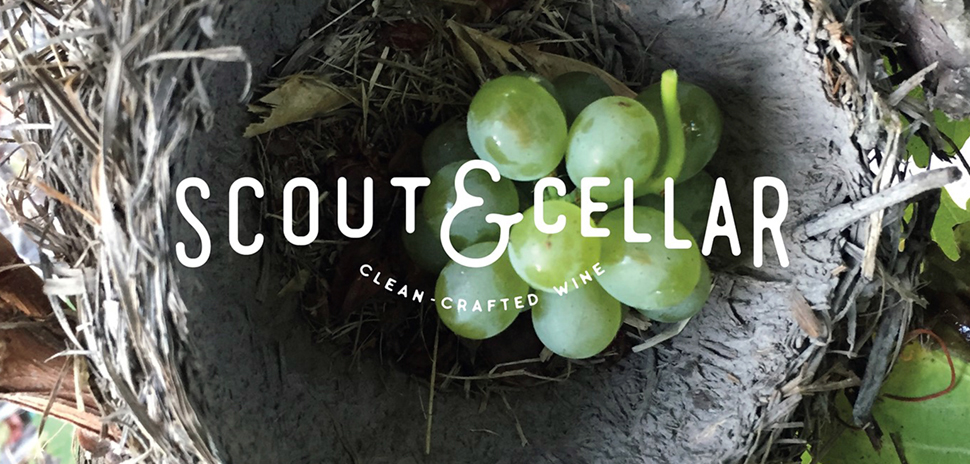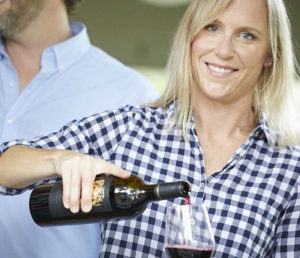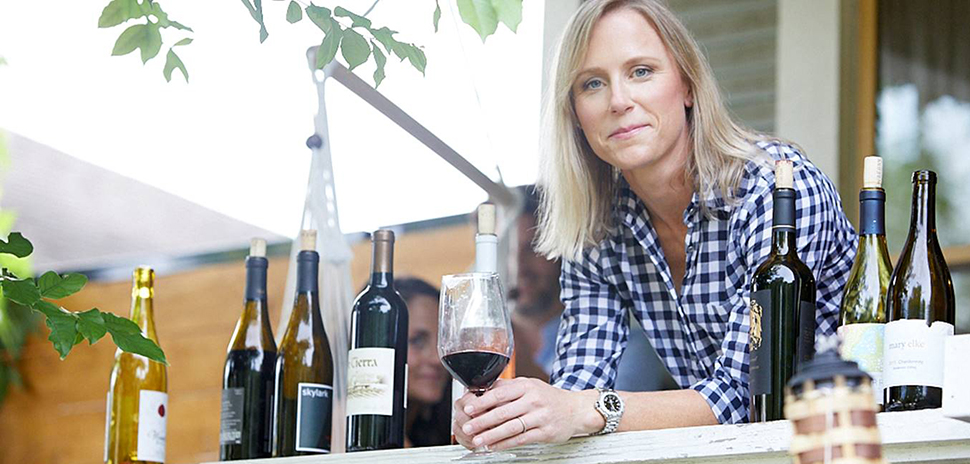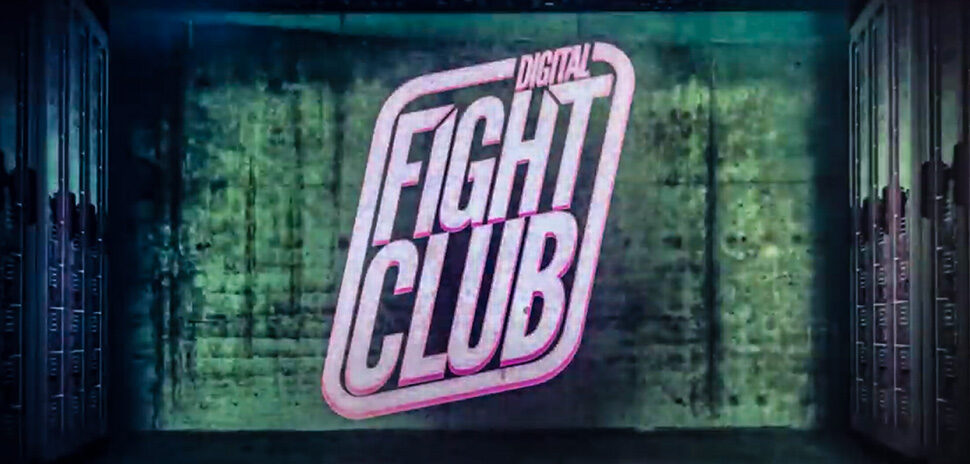Sarah Shadonix loves to drink wine, but she didn’t like the headaches she typically got afterward prompting her to research what might be causing them.
What she discovered was that mass produced wines often contain synthetic pesticides, chemical additives, and added sugar.
Shadonix, who spent more than eight years in law as a commercial litigator, decided to pursue her love of wine by getting certified as a sommelier. Around that same time, her idea for an e-commerce wine club began to form.
Scout & Cellar officially launched a couple weeks ago and is dedicated to delivering what the company has termed “clean-crafted” wine produced from fruit grown naturally without synthetic pesticides and vinified without modifications or added sugar.
The Celina-based business has five employees and more than 200 social entrepreneurs — wine consultants who work solely on commission to sell wine sourced by Scout & Cellar.

[Image courtesy of Scout & Cellar]
SCOUT & CELLAR FOUNDER LEARNS FROM CALIFORNIA WINE BUSINESS
Shadonix learned the business during a two-year stint with California-based Wine Country Connect, a wine e-commerce and logistics company that powers the wine segments of internet retailers such as Wine.Woot and Rue La La by curating wine offerings.
“I got to learn the industry and developed some good relationships,” she said. “In fact, the company with whom I worked is our logistics partner in this company.”
Her team, with the help of branding partner, BrandCory, developed the “clean-crafted” terminology to describe the wines Scout & Cellar sources and produces.
“There are a few other more commonly known, but very ambiguous terms in the wine industry, things like natural wine or minimal intervention wine that don’t necessarily communicate the types of wines that we are after,” she said.
The company interviews the vinters and growers and also lab tests wines before it agrees to buy them.

[Photo courtesy of Scout & Cellar]
TAKING THE HEADACHE OUT OF WINE DRINKING
Scout & Cellar does all of its business online, fulfilling and shipping direct to customers or through its wine consultants. Consultants earn a commission on their sales, and a percentage of what is sold goes back to the company as revenue.
“It’s a movement as much as a business model.”
Chris Hite
Chris Hite, an independent consultant and part of the sales leadership team, has been with Scout & Cellar since before its launch. His friend, Michael Cory, principal of branding agency BrandCory, suggested he meet Shadonix. Hite now oversees about half the company’s consultants and also does his own sales.
“It’s a movement as much as a business model,” Hite said. “Certainly, I hope to make money doing this, but it is also helping people, particularly women, who have trouble drinking wine without adverse health effects.”
Hite, often in conjunction with Shadonix, has conducted more than 20 wine tastings over the past month to introduce friends and acquaintances to Scout & Cellar.
“It doesn’t really feel like business, because it’s fun. We had a small home event last weekend with maybe a dozen people and I think we sold $1,200 worth of wine from the party,” he said.

Scout & Cellar’s Sarah Shadonix [Photo courtesy of Scout & Cellar]
Shadonix said the company is on target to become profitable within 18 months. She spent less than $250,000 of privately raised funds to launch.
“It’s a thrill to work with these small producers and share beautiful wines that are produced naturally with people who haven’t been able to drink wine because of health problems,” she said. “They can drink our wine and it’s a whole new experience.”
Taylor Bowles, wife of Trey Bowles, co-founder and CEO of The Dallas Entrepreneur Center, said she was connected to Shadonix by mutual friends and has started working as an executive consultant.
“I’ve always been the kind of person who has said, ‘direct sales are not my thing, I’m not interested,’ but I just knew this was different,” Taylor Bowles said. “I’m loving every minute of it.”
She’s already hosted several wine tastings to share Scout & Cellar’s offerings.
“People try the wine and they say it just tastes so much cleaner,” she said.
SCOUT & CELLAR BRINGS INGREDIENT TRANSPARENCY TO WINE
“We really believe that wine is that next step into that tectonic shift that’s happening culturally in wanting ingredient transparency.”
Sarah Shadonix
Shadonix said she believes the company is well-positioned to benefit from consumer trends that show people want more information about what is in the products they consume.
“We really believe that wine is that next step into that tectonic shift that’s happening culturally in wanting ingredient transparency,” she said.
In addition to buying from wineries, Scout & Cellar is producing some wine in partnership with growers that will have labeling that’s still in the design process. Its fall release of wines, which the company is receiving now at its Celina distribution center, were sourced from California, Oregon, and France.
![]()
Get on the list.
Sign up to keep your eye on what’s new and next in Dallas-Fort Worth, every day.
And, you’ll be the first to get the digital edition of our new Dallas Innovates magazine:
The annual edition publishes in January






























